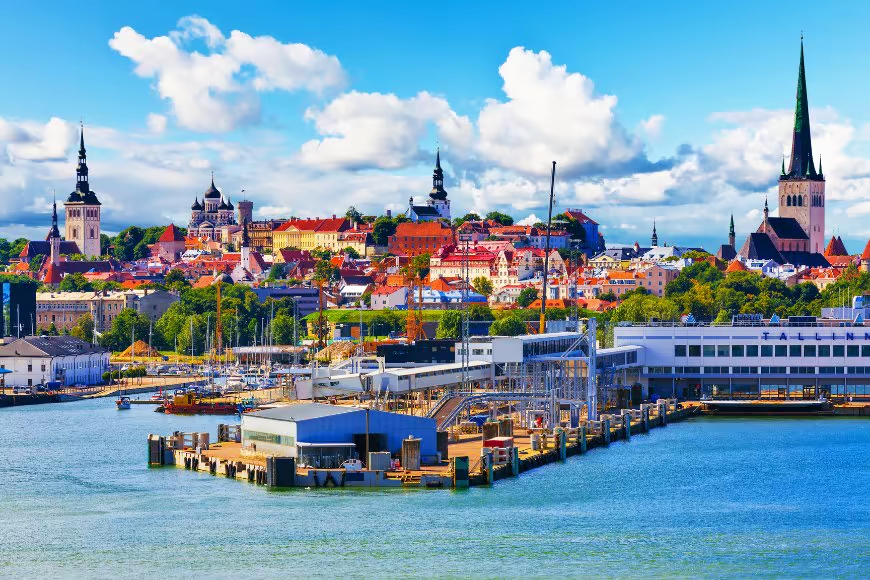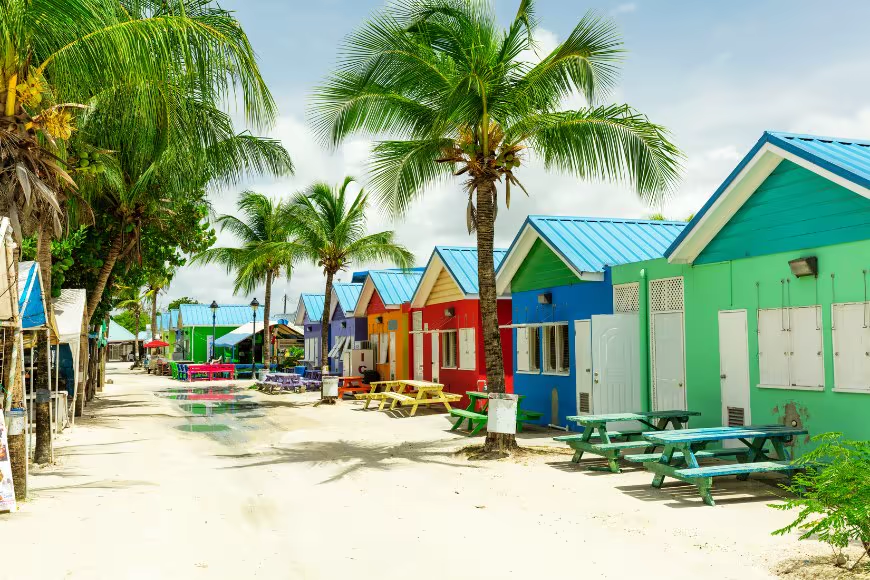The Rise of Remote Work

The rise of remote work has transformed the way we work and has opened up new opportunities for people to work from anywhere in the world. With just a stable internet connection and a laptop individuals can now work from the comfort of their homes, coffee shops or even the beach.
As the trend towards remote work continues to grow, many countries have recognized the benefits of attracting digital nomads and have introduced special visa programs to make it easier for them to work remotely from their country. These visa programs are designed to provide a legal framework for digital nomads, allowing them to stay in a country for an extended period while working remotely.
The benefits of digital nomad visas are many. Firstly, they provide an opportunity for people to explore new cultures, meet new people and gain new experiences. Secondly, they can help support local economies by providing a new source of income for businesses in the region. Finally, they can help to establish a new class of professionals that contribute to the growth of the digital economy in the country.
So, if you're a digital nomad looking for the best countries to work remotely from here are seven top destinations that offer easy nomad visas:
1 Estonia

Estonia has been a trailblazer in promoting remote work by offering a digital nomad visa which allows remote workers to stay and work in the country for up to one year. The visa application process is hassle-free and can be completed entirely online. To apply for the visa, applicants must provide proof of income and demonstrate their financial capacity to support themselves during their stay in Estonia.
Estonia is a beautiful country known for its picturesque landscapes, medieval architecture and rich cultural heritage. It has a highly developed digital infrastructure, making it an ideal location for remote workers. The country is also renowned for its high quality of life, excellent healthcare system and low crime rates.
The Estonian government has created a dedicated website to provide more information on the digital nomad visa. The website outlines the application process, eligibility requirements and other essential details for individuals interested in applying for the visa. Remote workers can also find useful information on the website regarding the cost of living, housing options and other practical considerations.
Overall, Estonia is a great destination for remote workers looking for a change of scenery and a high-quality work-life balance. With the digital nomad visa, Estonia has made it easy for remote workers to experience the country's unique culture, enjoy its natural beauty and explore its rich history all while pursuing their professional goals. To learn more about the digital nomad visa in Estonia, please visit the Estonian government's website.
Pros:
- High-speed internet access is available throughout the country
- Excellent work-life balance with a focus on productivity and efficiency
- Low cost of living compared to other European countries
- Friendly and welcoming local community
- Beautiful nature and unique cultural experiences
Cons:
- Short days during winter months with limited daylight hours
- Limited access to non-Estonian language support for official documents or government services
- Limited job opportunities in some industries
2 Georgia

Georgia is a stunning country that offers an enriching cultural experience and an emerging startup scene. The country has taken notice of the growing trend of digital nomads and has introduced a digital nomad visa program to attract remote workers. This program allows digital nomads to stay and work in Georgia for up to one year, making it an excellent destination for those who want to experience a new culture while still being able to work remotely.
The application process for the digital nomad visa in Georgia is straightforward and it can be completed entirely online. To apply, applicants must show proof of their income and have health insurance. Once the application is approved, the digital nomad can stay in Georgia for up to one year with the possibility of extending the visa for an additional six months.
If you're considering applying for the digital nomad visa in Georgia, it's essential to visit the Georgian government's website for more information. The website provides comprehensive details about the application process, required documents and other important information to help you make an informed decision.
In conclusion, Georgia is an ideal destination for digital nomads who are looking for a unique cultural experience and an emerging startup scene. With its digital nomad visa program, the country has made it easier for remote workers to live and work in Georgia for an extended period making it an excellent option for those who want to explore a new country while maintaining their professional careers.
Pros:
- Low cost of living
- Vibrant startup and tech scene with many coworking spaces
- Rich history and culture to explore in leisure time
- Warm climate and beautiful scenery
- Friendly local community
Cons:
- Limited English language proficiency outside of the capital city
- Infrastructure outside of the capital city can be limited
- Limited job opportunities in some industries
3 Costa Rica

Costa Rica has long been a popular destination for travellers seeking the perfect combination of natural beauty and a relaxed way of life. It's no surprise that it has become a favourite destination for remote workers looking for a change of scenery. In response, the Costa Rican government has introduced a remote worker visa program that allows people to stay and work in the country for up to two years.
To qualify for this visa, applicants must provide proof of a minimum monthly income of $2,500 and proof of health insurance. Once approved, they can work remotely for an employer outside of Costa Rica or operate their own business within the country. This program is ideal for those who want to enjoy the beauty of Costa Rica while continuing to work remotely.
The Costa Rican government website provides all the information needed to apply for the remote worker visa. The site lists the required documents, including a valid passport, a background check and proof of income and health/insurance. The application process is straightforward and all forms can be submitted online.
Apart from the opportunity to work in a tropical paradise, Costa Rica offers a high quality of life, excellent healthcare and a stable political climate. With a low cost of living and a welcoming culture, it's easy to see why Costa Rica has become a top destination for remote workers.
In conclusion, Costa Rica is an excellent destination for remote workers seeking a change of pace and scenery. With the ease of the remote worker visa application process, it's a great option for those looking to work remotely for an extended period. More information about the remote worker visa program in Costa Rica can be found by visiting the Costa Rican government's website.
Pros:
- Beautiful beaches and nature to explore
- Warm climate all year-round
- Low cost of living
- Access to healthcare services
- Welcoming and friendly local community
Cons:
- Potential language barriers outside of major tourist areas
- Limited access to high-speed internet in some areas
- Limited job opportunities in some industries
4 Mexico

Mexico has become an increasingly popular destination for remote workers looking for a change of scenery. With its warm climate, rich cultural heritage and affordable cost of living, it's no wonder why many digital nomads are flocking to this beautiful country.
Fortunately, for those interested in staying in Mexico for a more extended period, the country offers a temporary resident visa that allows remote workers to stay for up to four years while working remotely. The application process is straightforward and applicants need to provide proof of income and demonstrate that they have adequate health insurance.
The temporary resident visa provides remote workers with the opportunity to immerse themselves in the vibrant Mexican culture and explore the country's many attractions while working remotely. The visa also provides peace of mind as remote workers can stay in the country legally and avoid any legal issues that might arise from working in Mexico without the proper documentation.
If you're interested in obtaining a temporary resident visa for Mexico, be sure to check out the Mexican government's website for more information on the application process and requirements. With its welcoming atmosphere, stunning scenery and digital nomad-friendly policies, Mexico is undoubtedly an excellent destination for remote workers looking to escape the daily grind and live life on their terms.
You can find more information on the temporary resident visa in Mexico on the Mexican government's official website: https://www.gob.mx/inm/acciones-y-programas/visas-temporales
Pros:
- Rich culture and history to explore
- Low cost of living
- Warm climate year-round
- Vibrant expat and digital nomad community
- Easy access to the US for business purposes
Cons:
- Potential language barriers for non-Spanish speakers
- Safety concerns in some areas
- Limited access to high-speed internet in some areas
5 Portugal

Portugal has become an increasingly popular destination for digital nomads looking to work remotely thanks to its breathtaking natural landscapes, welcoming culture and reasonable cost of living. The country's D7 visa is one of the easiest nomad visas to obtain, allowing remote workers to stay in Portugal for up to two years while working remotely.
To apply for the D7 visa, applicants must provide proof of income, show that they have adequate health insurance coverage and provide proof of accommodation in Portugal. The visa application process can be completed at a Portuguese consulate in the applicant's home country or in Portugal. Typically it takes around two to three months to process.
The D7 visa is particularly appealing to digital nomads who are seeking a longer-term stay in Portugal. The visa allows for easy travel within the Schengen area and also allows for family members to accompany the visa holder. Furthermore, the cost of living in Portugal is lower than in many other European countries, making it an attractive option for those looking to stretch their budget.
If you're interested in applying for the D7 visa in Portugal, be sure to visit the Portuguese government's website for more information on the application process, requirements and fees. With its stunning scenery, vibrant culture and easy visa process, Portugal is definitely a top contender for digital nomads looking for a new place to call home while working remotely.
Here is the link to the Portuguese government's website for more information: https://imigrante.sef.pt/en/solicitar/residir/
Pros:
- Beautiful scenery and architecture to explore
- Rich history and culture
- Low cost of living
- Warm climate year-round
- Access to healthcare services
Cons:
- Language barrier for non-Portuguese speakers
- High tourist season crowds and prices
- Limited job opportunities in some industries
6 The Czech Republic

The Czech Republic is a stunning destination for digital nomads who appreciate culture, history and architecture. The country's freelance visa is an excellent option for those looking to experience the Czech Republic's charm and beauty while working remotely.
With a freelance visa, remote workers can stay in the country for up to one year while working on their business or job. To apply, applicants need to provide proof of income and health insurance. The process is relatively simple and can be completed online. Once approved, digital nomads can enjoy the country's rich culture and explore its cities and towns including the magnificent Prague Castle, the famous Charles Bridge and the charming Old Town Square.
To apply for a freelance visa in the Czech Republic, visit the Czech government's website. The website provides detailed information about the visa's requirements, including the necessary documents and application forms. Additionally, the website offers helpful tips on living and working in the Czech Republic, making it a valuable resource for digital nomads planning to stay in the country for an extended period.
In conclusion, the Czech Republic is an ideal destination for digital nomads seeking a vibrant and culturally rich environment. With a freelance visa, remote workers can stay in the country for up to one year enjoying its history, architecture and cuisine. For more information on how to apply for the freelance visa in the Czech Republic, visit the Czech government's website.
Pros:
- Beautiful architecture and culture to explore
- Vibrant startup and tech scene with many coworking spaces
- Low cost of living compared to other European countries
- Efficient public transportation
Cons:
- Short days during winter months with limited daylight hours
- Limited job opportunities in some industries
- Language barriers for non-Czech speakers
7 Barbados

Barbados has recently emerged as one of the most sought-after destinations for digital nomads who are looking for a tropical paradise with a stable internet connection. In response to the growing trend of remote work, Barbados has introduced a digital nomad visa program that allows individuals to stay and work on the island for up to 12 months.
The application process for the Barbados digital nomad visa is straightforward, and applicants must provide proof of income and demonstrate that they have health insurance. The visa also allows dependents to accompany the digital nomad. This program provides a unique opportunity for digital nomads to experience the vibrant culture, natural beauty and friendly people of Barbados while continuing to work remotely.
One of the main advantages of the Barbados digital nomad visa is that it is relatively easy to obtain. The process can be done entirely online and applicants can expect a decision within five business days. The visa also offers significant benefits such as tax exemptions on income earned outside of Barbados and the ability to open a local bank account.
To apply for the digital nomad visa in Barbados, interested individuals can visit the official government website for more information on the application process and requirements. The website provides comprehensive information on the program, including eligibility criteria, application requirements and visa fees.
Overall, Barbados is an excellent destination for digital nomads looking for a tropical island paradise with a thriving business environment. With a stable internet connection, relaxed lifestyle and favourable tax regime, Barbados offers an ideal location for remote workers to work and play.
Pros:
- Beautiful beaches and nature to explore
- Warm climate year-round
- Friendly and welcoming local community
- Easy access to the US and UK for business purposes
- Low crime rate
Cons:
- High cost of living compared to other Caribbean countries
- Limited job opportunities in some industries
- Limited access to high-speed internet in some areas
In conclusion, these seven countries are fantastic destinations for digital nomads looking to work remotely while experiencing different cultures and environments. These countries have streamlined visa processes, making it easier for digital nomads to obtain the necessary permits to live and work for extended periods. Furthermore, these countries are known for their welcoming attitudes towards remote workers, providing them with a friendly and supportive environment to work and live in.
It's worth noting that these countries visa policies may change over time and it's crucial to check government websites for the most up-to-date information on visa requirements and application processes. It's also essential to consider other factors such as cost of living, healthcare and safety, when choosing a destination for remote work. However, these countries are an excellent starting point for digital nomads looking for a new adventure and a fresh experience.
Overall, remote work has opened up new possibilities for individuals to travel and explore the world while still being able to earn a living. These countries offer a perfect blend of work and play, allowing digital nomads to work efficiently while immersing themselves in new cultures and experiences. So, if you're ready to take the plunge and embark on a new remote work adventure, be sure to consider these seven countries for your next destination.

